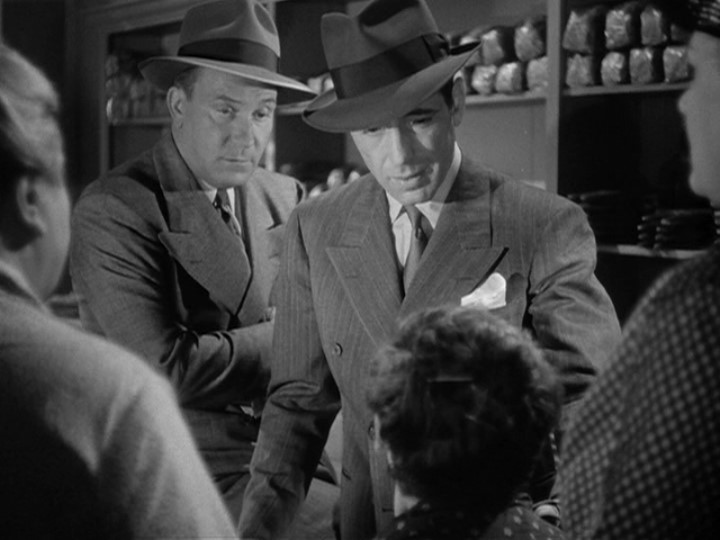
The name Humphrey Bogart is not synonymous with comedy. Although Bogie was known for giving some good one-liners, he was no Groucho Marx. This is why All Through the Night (1941) is different from other Bogie movies. It is a comedy that features many actors who were known for their dramatic abilities.
Joining Bogie in the cast is Peter Lorre, who would spoof some of his horror characters later in his career, but was known for his dramatic roles. Conrad Veidt is in the cast as well. Of course he was a famous actor in
The story revolves around Bogie as Gloves Donahue. Gloves is the leader of a smalltime gang, mainly interested in gambling. One day Glove is unable to eat a piece of the cheesecake he so likes because the man who delivers it had not arrived. This gets Gloves mad and he goes on the hunt to find the cheesecake man. Well, he finds the man, but he’s dead. So Gloves and his gang try to find the killer. What they end up finding is a Nazi spy ring here in
Comedies aren’t known for their plots, so this weak plot should not be much of a surprise. The lack of laughter this movie draws from an audience should be surprising. It is only a worthwhile watch for those fans of Humphrey Bogart, who would like to see him do something different. He tries, as do the rest of the actors, but he is just not Bogie on the screen here.
The exchanges in German between Lorre and Veidt are great to see. As is Bogie’s attempt to speak German near the end. Overall though, it is better to see the three in
Peter Lorre might disagree with my assertions that the movie was meaningless. This was the movie in which he would meet his second wife, Kaaren Verne. Verne had immigrated to the

No comments:
Post a Comment